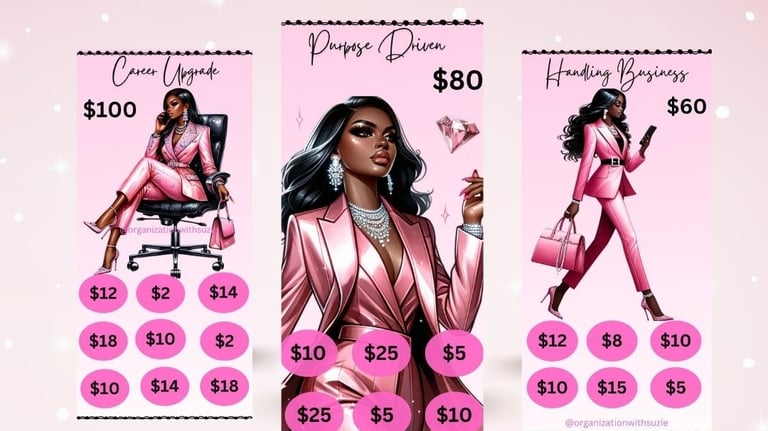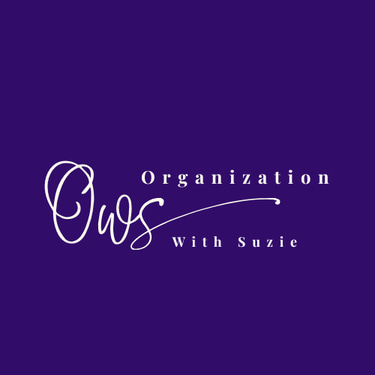10 Everyday Tips to Pay Off Credit Card Debt Quickly and Boost Your Savings


Introduction
Are you tired of feeling overwhelmed and bogged down by credit card debt? Are you ready to regain control of your finances and start working toward a debt free lifestyle? In this post, we'll explore 10 effective strategies to help you to pay off your credit card quicker and boost your savings.
Whether you are a beginner and starting your debt repayment journey or you are looking to accelerate your strategy, these 10 practical tips will provide you with tools and strategies you need to achieve financial freedom. So, let's dive in!
1. Create a Budget
The first step towards creating off credit card debt quickly is to create a realistic budget. Creating a budget does not have to be boring. It is a great wat to keep track of your income and expenses. It's also a good system to understand where your money is going. This will help you identify areas where you can reduce spending and costs as well as allocate more funds toward paying off your debt.
2. Pay more than the minimum amount due.
Paying only the minimum amount due on your credit card will keep you in debt longer. This will increase the amount of interest you pay monthly and yearly. Get ahead of the interest. When possible, try to pay more than the minimum to reduce your principal balance faster. You can start with paying an extra $20 toward your bill or more, if able, to assist in paying down credit card debts.
3. Automate Your Payments
Automating your payments is not often discussed as a great way to help reduce your credit card debt. If you haven't already done this, set up automatic payments for your credit card bills to avoid missed or late payments. Missed and late payments result in additional fees that add up over time - not to mention it gets reported to credit bureau agencies which can impact your credit score. This ensures that your payments are made on time. Again, it helps you avoid extra fees and maintain or improve your credit score.
4. Use Windfalls Wisely
Although windfalls are not a consistent form of income, whenever you receive an unexpected amount of cash, such as tax refunds, bonuses, or gifts, use that money to make extra payments on your credit card debt. I know you may want to hold onto that money for personal use. However, these financial windfalls can significantly speed up the debt repayment process and accelerate your journey to becoming financially free.
5. Limit Credit Card Usage
This is where I struggled in the past. When scrolling online shopping sites, there are so many goodies, tech gadgets and interesting toys that are just screaming for me to buy. However, to avoid accumulating more debt, try to limit the use of your credit cards. A good way to help you reduce use is, ask yourself, "do I really need this?" is quite helpful. Or you can use cash or a prepaid debit card with a specific amount of your choosing for everyday purchases to ensure you're not adding to your credit card balance.
6. Snowball or Avalanche Method
Consider using the snowball or avalanche method to pay off your credit card debt. Dave Ramsey has discussed in many of his podcasts regarding the snowball method. This involves paying off the smallest balances first. The avalanche method mainly focuses on the highest interest rates. Choose the approach that best suits your financial situation and motivation to pay off your credit card debt.
7. Negotiate Lower Interest Rates
Negotiating a lower interest rate on your credit is a wonderful way to save money over a period of time. Depending on the issuer, the percentage may vary.
First, review the terms and conditions of your current credit card(s). Carefully read through the current interest rate section along with the penalties and late payment conditions.
Next, check your credit report and score to ensure that all payments have been recorded in the past. Remember, a good credit score can increase your chances at negotiating a lower rate, but if it is low, work on improving your score before contacting your bank to negotiate.
Importantly, compare interest rates and fees that are offered by other credit card companies. This will give you a better idea on what you can potentially ask for and receive.
When contacting your credit card company, ask to speak with a customer service representative specifically for negotiating a lower interest rate. Be direct and professional. Clearly state the reasons for wanting to negotiate a lower rate, such as you have been a loyal customer for... years and have been making payments on time.
Be prepared for the proposed interest rate from the issuer and be willing to negotiate a compromise.
So many forget this step. Follow-up in writing. Have the credit card company send you an updated agreement outlining the new terms, conditions, and interest rate to keep for your records. Review it thoroughly and refer to the terms often.
It never hurts to ask for a lower interest rate. The worst thing they can say is no, so don't let that stop you from trying.
8. Consolidate Your Debt
Consolidating your debt can be quite helpful If you have multiple credit cards with high balances. If this is for you, consider consolidating your debt into a single loan with a lower interest rate. This not only simplifies your monthly payments, but also reduce the total amount of interest you pay. Note: Before starting this process, talk with a reputable financial expert on how this will affect your credit and finances in the long term.
9. Avoid Unnecessary Purchases
Regularly checking your credit card statement and daily balances helps to avoid unnecessary purchases. Be mindful of your spending as well as any unused subscription services. Also, be aware of impulse buys to avoid them. Focus primarily on your financial goals. As a reminder, every dollar that is saved can be used to pay down your debt faster.
10. Track Your Progress
Consistently track your progress. Create and review your budget and debt repayment goals. Remember to celebrate small milestones along the way to keep yourself encouraged and focused on becoming debt-free.
Disclaimer: This is not professional financial advice. These are tips based on experiences of the writer who helps individuals to organize their personal finances. For professional advice, please contact a certified financial officer or accountant. This post contains website links.
Predict the future by creating it
You didn’t come this far to stop
Our mini savings challenge is perfect for those who are just beginning their savings journey. It is designed to make saving fun and achievable, even with a small budget.
Write a short text about your service
Write a short text about your service








